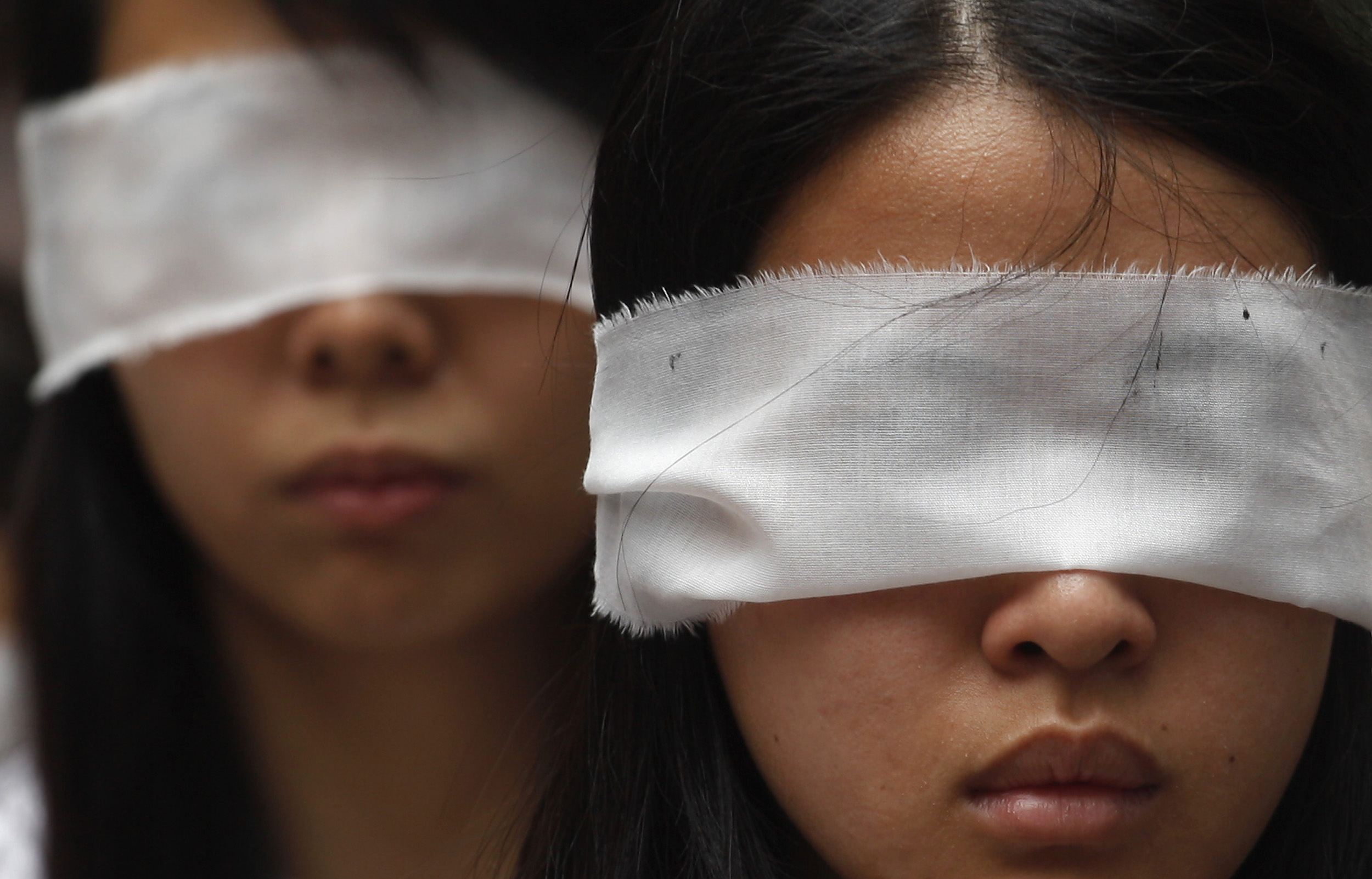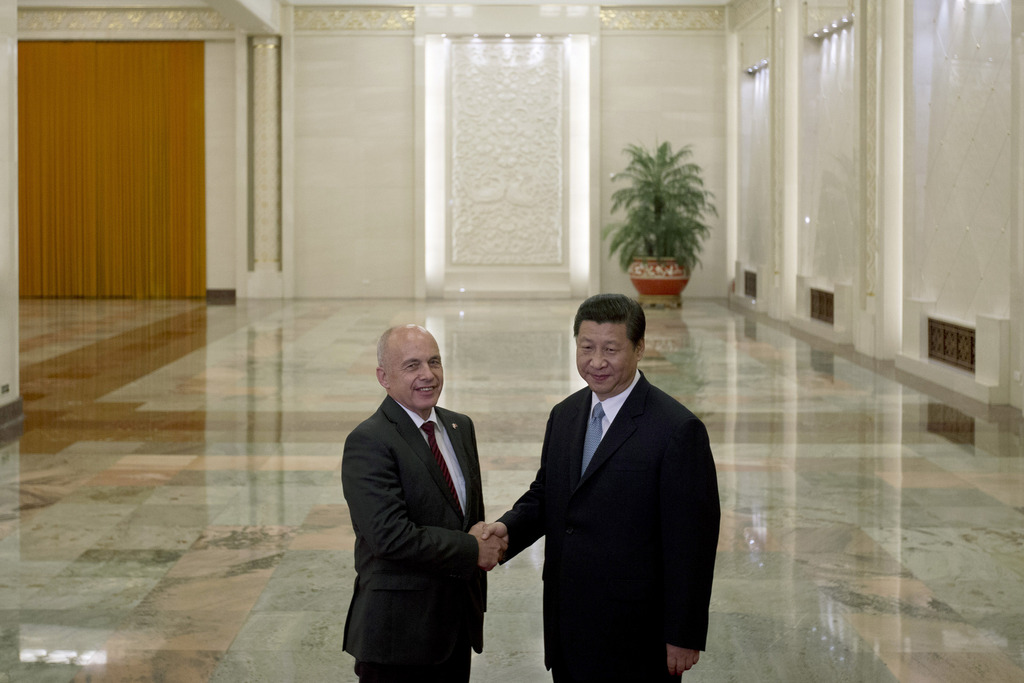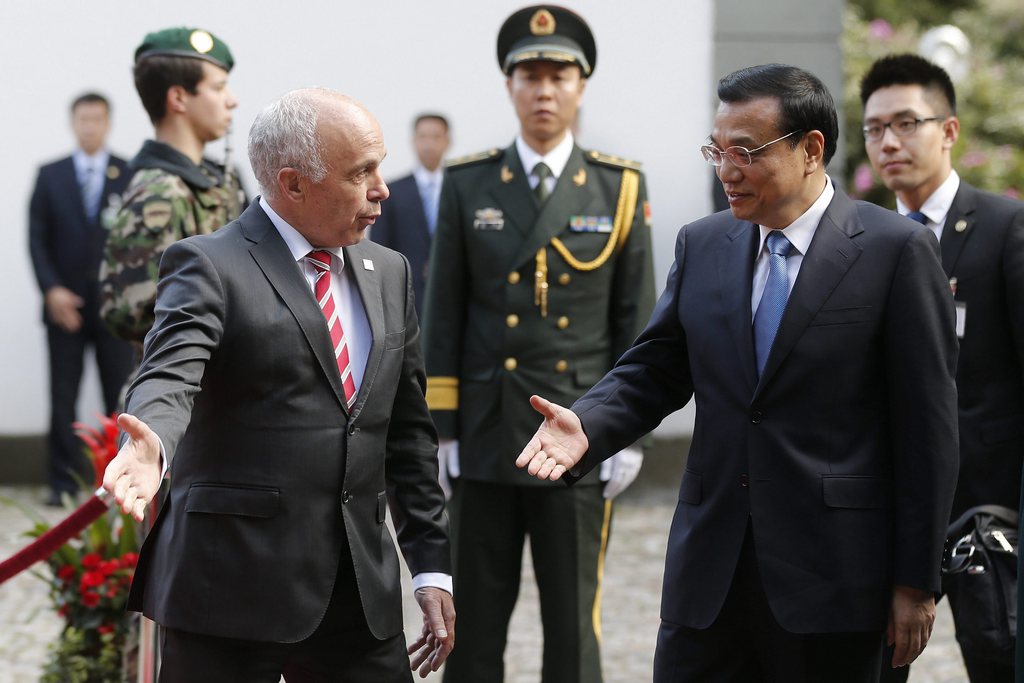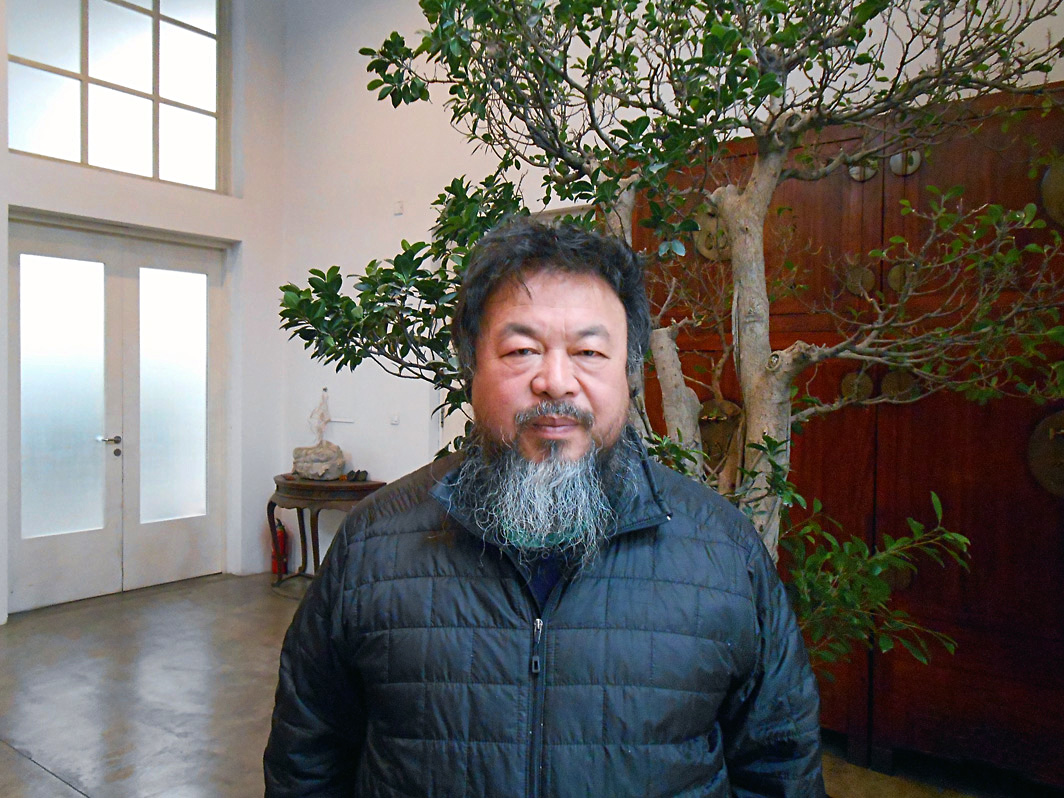Are China’s latest reforms thanks to external pressure?

Hot on the heels of new reforms unveiled by the Chinese government, Switzerland is holding bilateral talks on human rights in Beijing behind closed doors. This is supposed to make them more effective than public condemnation or international campaigns.
Just two weeks ago, the third plenum of the Communist Party ended with the announcement of a series of economic and social reforms. These include a relaxation of the one-child policy, the abolition of “re-education through labour” camps, and a reduction in the number of crimes that would be subject to the death penalty.
Paul Koller, head of the Swiss delegation at this 12th bilateral session on human rights, welcomes the proposed reforms.
“We’re pleased with these announcements,” says the ambassador. “They’re in line with the recommendations and issues that we’ve been working on with our Chinese partners for many years.”
But Alain Bovard, a lawyer with the Swiss arm of Amnesty International, is more cautious.
“It’s a step in the right direction,” he says. “But it remains to be seen how these reforms will be implemented. It shouldn’t mean, for example, that re-education camps are going to be replaced by other forms of arbitrary detention.”
On October 22, 2013, Switzerland made the following recommendations during the Universal Periodic Review of China at the UN Human Rights Council in Geneva:
1) Switzerland welcomes the reduction of the number of crimes subject to the death penalty, even if the ultimate goal must remain its abolition. Switzerland recommends that statistics on executions be published.
2) Switzerland is concerned about the persecution of individual members of civil society, and recommends that China ensure that defenders of human rights can carry out their legitimate activities, including participating in international mechanisms, without being subject to reprisals.
3) Switzerland recommends that China facilitate visits by the High Commissioner for Human Rights and special rapporteurs, including in regions occupied by Tibetans and Uighurs.
Real progress
This new set of reforms is part of a change of course planned by the new leaders in Beijing, according to China expert Marie-Claire Bergère.
“There have already been developments recently that the Chinese themselves see as positive,” she says.
Since Xi Jinping became party secretary and succeeded to the country’s presidency in March 2013, a tough anti-corruption campaign has swept a number of high-level officials from power. Among them are Jiang Jiemin, head of the state-run Assets Supervision and Administration Commission, and Liu Tienan, deputy head of the National Development and Reform Commission – the body that manages the entire Chinese economy.
“But in a country where corruption is rampant, this public flogging of high-ranking officials is also a result of fighting between clans and factions,” says Bergère, who is based in Paris.
In fact, the government’s biggest critics continue to be persecuted. According to an Amnesty International report submitted for the Universal Periodic Review of China before the UN Human Rights Council last month, “(h)arsh criminal sentences continue to be imposed on writers, bloggers, journalists, academics, whistle-blowers and ordinary citizens for peacefully exercising their right to freedom of expression.”
Bergère agrees: “The regime’s favourite targets are lawyers who specialise in representing oppressed minorities and peasants whose property has been confiscated. Some of them are arrested or detained without due process.”
She adds that journalists have not been spared. “Many of them practise self-censorship; some will test the government’s limits by crossing that red line. The authorities have asked the media, like other citizens, to denounce abuses and fight corruption and pollution. But this has not prevented some reporters from being arrested after exposing wrong-doing.”
“The reforms announced this month haven’t shaken the conservatives – they even seem to have gained strength,” Bergère continues. “Still, the steering committee created to oversee the reforms is headed by Wang Yang, who many consider as the leader of the liberal faction of the party.”
An opaque process
So what will the dialogue on human rights between Bern and Beijing bring? Koller maintains that the talks, which will finish in Beijing on November 27, are useful.
“The reforms that have just been announced are proof that conversations between other countries and China are having an impact on the authorities,” he says. “The one-party system may be untouchable, but it’s still possible to raise a number of issues – even sensitive ones, like the situation of minorities, social rights, the death penalty and the justice system.”
The head of the Swiss delegation is quick to defend the secrecy surrounding the bilateral talks.
“The confidential nature of the dialogue allows us to have direct and open discussions and to give constructive criticism,” says Koller. “We have experts from both countries who can deal with issues like the prison system, minorities or the question of human rights in connection with economic activity and individual liberties.”
In this context, the Swiss government is in touch with human rights activists like Bovard.
“Sometimes we’re involved in these exchanges,” the Amnesty International lawyer says. “Other times they keep us informed. But the whole process is not very transparent. I have a hard time gauging the exact results of the dialogue since it started in 1991.”
Bovard adds: “In my view, the Chinese just do whatever they want in these discussions.”
Priority to the economy
Bergère agrees that Western powers hold little sway over the Chinese on these issues.
“Compared to the ’90s, the rhetoric on human rights in China by foreign officials has really softened. Today there’s a lot more talk about business contracts than human rights. After [the Tiananmen Square massacre in] 1989, human rights were an important issue for Western leaders to raise during discussions and negotiations with Beijing.”
But now the focus has shifted. “As China has become stronger economically, talk of human rights by the West has been turned down to mute,” Bergère says.
Switzerland itself signed a free-trade agreement with China this year, a move applauded in business circles. But human rights activists have deplored the lack of attention given to labour rights and the absence – in their view – of any reference to human rights in the 1,200-page accord.
An internal procedure
Should there instead be more emphasis on international campaigns to denounce human rights violations in China? Bovard has his doubts.
“Campaigns allow us to raise international public awareness,” he says, “but the jury’s still out on whether they can really promote change in China.”
“Amnesty International has tried all sorts of tactics: public activities as well as more confidential ones,” Bovard adds. “For two years now, we’ve been trying to strengthen civil society in China, including by showing them which rights they can claim.”
(Translated from French by Geraldine Wong Sak Hoi)

In compliance with the JTI standards
More: SWI swissinfo.ch certified by the Journalism Trust Initiative





You can find an overview of ongoing debates with our journalists here. Please join us!
If you want to start a conversation about a topic raised in this article or want to report factual errors, email us at english@swissinfo.ch.